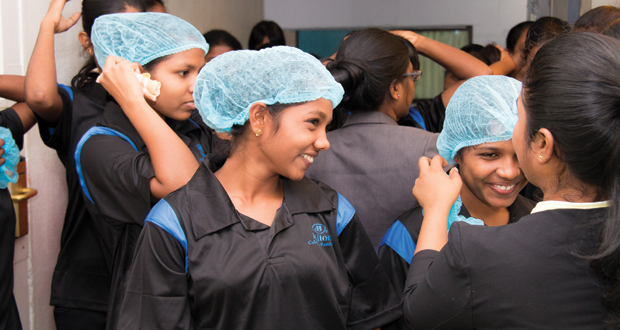The International Youth Foundation (IYF), in partnership with Hilton and the Center for Strategic and International Studies, created the first Global Youth Wellbeing Index in 2014. This study measured the crucial environmental factors that shape the transition of young people to adulthood around the world, and its purpose is to help world leaders understand societal forces that foster or hinder the wellbeing of the world’s youth—71 million of whom are currently unemployed—for purposes of social investment.
In a recent interview with LODGING, IYF CEO Bill Reese and Daniella Foster, senior director, global corporate responsibility at Hilton, described the index, which was updated to a 2.0 version in 2017, and explained how Hilton is using this type of intel to further inform its youth programs and ensure robust talent pipelines to meet current and future human resource needs.

According to Reese, the index used data gathered from international sources and a survey of young people worldwide to measure the wellness of young people in 29 countries—which represent 70 percent of the world’s population—across what he calls “domains of economic opportunity”: gender equality, economic opportunity, education, health, citizen participation, safety and security, and information and communication technology. “This index offers decision-makers—including communities, governments, businesses, philanthropists, and international aid agencies—a way of identifying and understanding opportunities for critical youth investments.”
Reese stresses that the primary purpose of the index is “not to shame or name,” but instead to serve as “a diagnostic tool to help our world leaders see where additional investments can promote positive youth development.”
Both Foster and Reese say data identifying key issues—e.g., the correlation between education and high well-being and economic opportunity and low well-being—can be used to initiate discussion on how to support positive change in many realms with potential investors. Reese suggests that companies that wish to be known for smart outcome-oriented investments might zero in on one or two of the universally identified issues, such as smoking, automobile accidents, depression, mental health, and gender issues.
But beyond what Foster calls “the broader, global society challenge we can tackle,” she says the hospitality industry could be both a benefactor for and beneficiary of positive youth development programs. “For us, the economic opportunity space is incredibly important because we’re set to add 86 million jobs to the economy in less than a decade. If the travel and tourism industries collectively could invest in skills training and development for young people, we could—as an industry—cut the global youth unemployment crisis in half.”
Foster describes steps Hilton is taking both in the community at large and within their training programs to promote positive youth development. Passport for Success, she says, is a first step to providing young people with the tools they need to succeed and grow. “The idea is for them to have a set of transferable skills, so whether or not they join our industry, they have a foundation of soft and life skills they can take with them forever.”
More directly related to future employment is the Careers in Hospitality celebration conducted at Hilton properties each May to make young people and their families aware of opportunities in hospitality. Then, once they are on staff at a Hilton property, she says, they are enrolled in Passport for Success, a life skills and training program geared to the hospitality industry, which was developed in partnership with IYF.
Calling positive youth development “the way upward,” Reese says. “To be successful adults, young people need life skills in addition to academic and vocational skills. Our hope is that a tool created by an international youth foundation and an international leader in hospitality—an industry that employs more people than any other industry in the world—will be used to make better investments in youth.”











